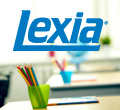| News for the Education Profession |  |
| ASCD Special Report -- Reading: The Core Skill (Part I) |
| Reading opens doors. Seeing a child learn to read is a wonder to behold, as words on a page become thoughts, concepts, images and destinations. Yet, learning to decode content is but one step toward success in our always-on, technologically sophisticated world of global competition.
Reading instruction was once centered firmly on helping new readers decode information. But an increase in the quantity of content now available to readers -- presented in many different formats and coming from many different sources -- and the mandates of the Common Core State Standards are changing that. The focus of reading instruction is shifting, with educators placing new emphasis on ensuring students can evaluate and analyze content and understand complex texts, especially in the higher grades.
Every child deserves the opportunity to develop strong reading skills, and achieving that goal requires we build into our practice instructional experiences that have been proven to work. This report looks at what can be done to help students become independent, thoughtful readers. After all, reading is the core skill, the one that leads to other skills.
Fiction -- think Harry Potter and Twilight -- and more complex nonfiction books are being used to draw students into the world of reading. Dare we say, reading has never been more popular.
These days, however, English class isn't the only place where students are being engaged with reading. Reading, like math, can be incorporated across the curriculum to not only reinforce the skill, but to also help students grasp challenging, subject-specific content matter. And books are just part of that equation. Despite gaps in achievement and technology, children as young as kindergarten are learning to read on e-readers and iPad tablet computers in schools all across the country.
Part I of this Special Report looks at the benefits of reading and writing with students, nonfiction texts, teaching early reading and whether holding back struggling readers works.
Part II of the report, to be published Thursday, explores challenging texts, reading aloud, technology and evaluating Common Core State Standard-mandated skills.
If you don't receive ASCD SmartBrief daily, we urge you to sign up for our timely e-newsletter. ASCD SmartBrief delivers the stories making news in your profession directly to your inbox -- for free. |
| At a Glance |  |  |
|
- 6 keys to effective reading instruction
There are six keys to effective reading instruction, says Richard L. Allington, professor at the University of Tennessee in Knoxville, and Rachael E. Gabriel, assistant professor at the University of Connecticut in Storrs. The professors write, in this issue of ASCD's Educational Leadership, that children should read books they select, read with accuracy, understand what they read, write about what they care about, talk with their peers about reading and writing, and listen to adults read. Educational Leadership
(3/2012)     
 | Find more time for individualized instruction. Nearly 25% of teacher time is spent testing, rather than teaching. Lexia Reading® individualizes instruction, delivers real-time assessment data without testing, and provides recommended resources to differentiate instruction. Learn more. |
| In the Classroom |  |  |
|
- How to help struggling readers
Pam Allyn, author and executive director of Lit-World, suggests in this article 10 strategies to help struggling readers improve. Among her recommendations are to avoid judging the reader, introduce students to different reading materials, read together with students, and provide time to talk and give students reading tools, such as digital devices. Allyn also suggests allowing students to read at their level, discuss books deeply, encourage rereading, empower students to take control over what they read and get joy from reading. Educational Leadership
(3/2012)     
- The benefits of reading, writing with students
 Online educator Rebecca Alber in this blog post encourages teachers to write and read alongside their students as a way to show them that adults -- even teachers -- also need to clarify, revise or start over with a new topic. "When we model for students our love -- and struggles -- as readers and writers, they will follow. The more our students fall in love with writing and reading, the more of it they will do," she writes. Edutopia.org/Rebecca Alber's blog
(2/6) Online educator Rebecca Alber in this blog post encourages teachers to write and read alongside their students as a way to show them that adults -- even teachers -- also need to clarify, revise or start over with a new topic. "When we model for students our love -- and struggles -- as readers and writers, they will follow. The more our students fall in love with writing and reading, the more of it they will do," she writes. Edutopia.org/Rebecca Alber's blog
(2/6)     
 |
|  |
| | Introducing the First Data-Driven Reading App
Lexia Reading for the iPad is the only research-validated literacy program
available for tablet devices, providing data-driven, individualized
learning. Fun, engaging, and age-appropriate activities for K-3 students
of all abilities, and struggling students grades
4-12 Available in late 2012.
| |
 |
|  |
| Research and Trends |  |  |
|
- How has technology changed reading?
Technology has altered the way students and others read, but it also has led to renewed energy about reading and increased access to books, says Joyce Kasman Valenza, teacher-librarian at Springfield Township High School in Erdenheim, Pa., and Wendy Stephens, a school librarian at Buckhorn High School in New Market, Ala. They write in this article about multimedia resources that now accompany electronic books, and the increased access to authors that readers have through social media websites, such as Twitter and Facebook. Educational Leadership
(3/2012)     
- Nonfiction curriculum improves reading, study shows
 An experimental curriculum focused on nonfiction texts helped improve the reading skills of some New York City students, a new study shows. The three-year study tracked about 1,000 students from kindergarten through second grade, half of whom used a program devised by the Core Knowledge Foundation, with the others using a "balanced literacy" approach. The study, conducted by the city's Education Department and funded by a charity, found students using the Core Knowledge curriculum scored higher in reading comprehension as well as social studies and science. The New York Times (tiered subscription model)
(3/11) An experimental curriculum focused on nonfiction texts helped improve the reading skills of some New York City students, a new study shows. The three-year study tracked about 1,000 students from kindergarten through second grade, half of whom used a program devised by the Core Knowledge Foundation, with the others using a "balanced literacy" approach. The study, conducted by the city's Education Department and funded by a charity, found students using the Core Knowledge curriculum scored higher in reading comprehension as well as social studies and science. The New York Times (tiered subscription model)
(3/11)     
- Study: Paper texts might improve reading retention
There might be advantages to reading text in print rather than in electronic form, according to the few researchers who have studied the topic. One study revealed that students who read material electronically required greater repetition and absorbed the material less fully than their peers who read the same information in paper texts. "What we found was that people on paper started to 'know' the material more quickly over the passage of time," said Kate Garland, a lecturer in psychology at the University of Leicester in England. Time.com/Healthland
(3/14)     
 | Lexia Closes the Gap within in One School Year
In a recent national study, 56 percent of a representative sample of K-3
at-risk students using Lexia Reading as recommended advanced through one or
more grade level of material to finish the year at the end-of-year
benchmark for their grade. Learn More
|
| Policy and Leadership |  |  |
|
- Ohio considers keeping struggling readers behind
A proposal by Ohio Gov. John Kasich would require third-grade students who are not reading at grade level to be held back. Under the legislation, students would be tested in reading beginning in kindergarten, and provided interventions, such as tutoring and summer school, if they are lagging behind their peers. Third-grade students who are behind grade level after two years of intervention, would be held back. The legislation was proposed in response to findings that students who struggle in reading in third grade are more likely to drop out of school. The Marion Star (Ohio)
(3/18)     
-
Should students be held back based on reading skills?: In Colorado, lawmakers are considering legislation that requires schools to put in place programs to help students read at grade level by third grade. At that time, if students are still struggling, they could be held back a grade. While supporters say retention -- which is recommended but not required under the proposal -- could be a "wake up call" for schools and others, critics say it acts to stigmatize students. Craig Daily Press (Colo.)
(3/17)
    
- Top teacher seeks greater focus on early reading
First-grade teacher Erin Lenz, Idaho's Teacher of the Year, believes a focus on improving students' early reading skills is the key to a better education system. "It is imperative that we look at cost-effective means to make sure students are reading at grade level before they leave the primary grades," said Lenz at a recent state Senate Education Committee hearing. "All schools need kindergarten and first-grade teachers who are experienced and effective in teaching reading," she added. The Spokesman-Review (Spokane, Wash.) (free content)
(3/12)     
| ASCD Resources |  |  |
|
| More on Reading: The Core Skill |
- Educational Leadership issue "Reading: The Core Skill"
- The Educational Leadership issue "Reading: The Core Skill" in the digital EL
- PD Online courses on Common Core State Standards and literacy strategies for:
Mathematics
History/Social Studies
Science
- ASCD Express issue "Reading: The Core Skill"
- ASCD book "Reading for Meaning: How to Build Students' Comprehension, Reasoning, and Problem-Solving Skills" (Silver, Morris, and Klein)
- April institute in Tampa, Fla., "Words Open Worlds: Building a Comprehensive K-12 Vocabulary Program"
- ASCD Literacy, Language, and Literature Professional Interest Community on ASCD EDge
- ASCD book "Teaching the Brain to Read: Strategies for Improving Fluency, Vocabulary, and Comprehension" (Willis)
- Summer Conference session in St. Louis, Mo., "Reading as a 21st Century Skill: Understanding Text Complexity and the Common Core State Standards Expectations for Independent Reading"
- Blog posts about reading in the Whole Child Blog
- Adolescent Literacy: An ASCD Action Tool (Beers; 2008)
- English language arts institutes in the Common Core State Standards Institute Series
|
| | |

Product announcements appearing in SmartBrief are paid advertisements and do not
reflect actual ASCD endorsements. The news reported in SmartBrief does not necessarily
reflect the official position of ASCD.
|
| |
|
Read more at SmartBrief.com |
|
A powerful website for SmartBrief readers including:
|
|
|
|
| |
| |
| | Recent ASCD SmartBrief Issues:
- Monday, March 26, 2012
- Friday, March 23, 2012
- Thursday, March 22, 2012
- Wednesday, March 21, 2012
- Tuesday, March 20, 2012
| | | Lead Editor: Trigie Ealey
Contributing Editor: Erin Cunningham
Mailing Address:
SmartBrief, Inc.®, 555 11th ST NW, Suite 600, Washington, DC 20004 | |
| |
|
| © 1999-2012 SmartBrief, Inc.® Legal Information |
|







